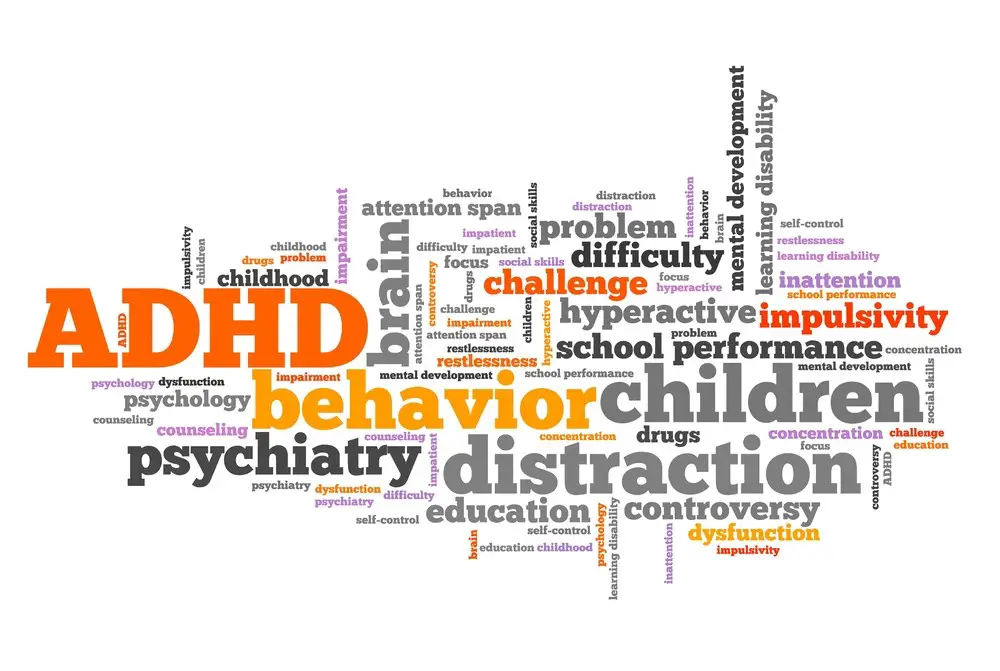As a BetterHelp affiliate, we receive compensation from BetterHelp if you purchase products or services through the links provided
Anxiety can make it challenging to identify the symptoms of ADHD and vice versa because the conditions often have overlapping symptoms. Taking an ADHD or anxiety quiz can help you determine whether you have one or both conditions, making it easier to receive the best treatment.
About two-thirds of people with attention deficit hyperactivity disorder (ADHD) also have at least one coexisting psychiatric disorder, of which one-quarter have an anxiety disorder. ADDITUDE reports that studies have found that the most common psychiatric disorders suffered by 80% of people with ADHD or ADD are anxiety and depression.
Differences Between ADHD and Anxiety
The symptoms of ADHD usually start in childhood, often continuing into adulthood. However, the symptoms can vary throughout the person’s life, including inattentiveness, hyperactivity, or both, sometimes resulting in behavioral problems.
On the other hand, anxiety sufferers have long-lasting anxiety that causes them distress and uneasiness, even in situations that don’t warrant it. These severe symptoms harm their lives, including work and relationships.
Anxiety can occur by itself, but it is sometimes a symptom of another mental health condition like phobia, panic disorder, obsessive-compulsive disorder (OCD), hypochondria, or post-traumatic stress disorder (PTSD).
People with ADHD have slightly different symptoms from those with anxiety since they mainly have trouble focusing and concentrating. People with anxiety live with fear and nervousness. However, certain conditions often mirror each other in the two conditions, making it difficult to understand if the person has anxiety, ADHD, or both.
For example, mirroring symptoms include difficulty concentrating or paying attention, feelings of restlessness, inability to relax, and trouble sleeping or insomnia.
Careful monitoring of the symptoms can help the person or their family members to tell the difference. However, getting a professional evaluation to ensure effective treatment is always best.

ADHD or Anxiety Quiz
An ADHD or anxiety quiz provides a clearer idea of the symptoms and issues making it easier to seek help.
- Do you or a loved one struggle to complete normal daily tasks?
- Yes
- Not at all
- Maybe
- Rarely
- Do you or a loved one fear trying new things or activities?
- Yes
- Not at all
- Maybe
- Sometimes
- Do you or someone else suffer from extreme forgetfulness?
- Yes
- Not at all
- Maybe
- Sometimes
- Do you or a loved one suffer extreme feelings of unexplained nervousness when going about your daily business?
- Yes,
- Not at all
- Sometimes
- Rarely
- Do you or a loved one often have headaches, stomachaches, or general body pain?
- Yes
- Rarely
- Not at all
- Sometimes
- Do you or someone you love get easily irritated?
- Yes
- Not at all
- Sometimes
- Rarely
- Do you or someone you love have difficulties multitasking?
- Yes
- Not at all
- Sometimes
- Rarely
- Do you or a loved one think a lot about negative things or constantly focus on negative things causing excessive worry?
- Yes
- Not at all
- Sometimes
- Rarely
- Do you or someone you love often experience trouble relaxing or going to sleep?
- Yes
- Not at all
- Sometimes
- Rarely
- Do you or someone you love have problems following commands or instructions?
- Yes
- Not at all
- Sometimes
- Rarely
Understanding the Answers to the ADHD or Anxiety Quiz
A person who answered yes or sometimes to all the questions may have ADHD and anxiety. Otherwise, a sufferer of anxiety will only have answered yes or sometimes to the questions relating to nervousness and fear. According to Healthline, the symptoms of ADHD include:
- Difficulty paying attention or concentrating
- Difficulties completing tasks
- Distractedness and forgetfulness
- Feelings of restlessness and inability to relax
- Difficulty sitting still and fidgeting
- Impatient when needed to wait and often interrupting people
- Difficulty listening or following instructions
- Can’t focus for long periods
- Insomnia and trouble sleeping
- Executive function difficulties
The symptoms of anxiety include:
- Difficulty paying attention and concentrating
- Feelings of restlessness and inability to relax
- Panic symptoms, including rapid heart rate, sweating, and rapid breathing
- Constant feelings of nervousness and worry
- Fear without an obvious cause
- Irritability
- Insomnia or trouble sleeping
- Unexplained stomach and headaches
The ADHD or anxiety quiz makes it easier to see where the symptoms of the two mental health disorders overlap. Though the test allows for a preliminary self-diagnosis of one or both conditions, getting a professional assessment is still the best way to get help with the symptoms.
Assessing and diagnosing ADHD correctly remains challenging because it’s essential to ensure no comorbid disorders like depression, sleep disorders, dyslexia, autism, substance misuse, or bipolar disorder. These conditions are all commonly seen alongside ADHD.
Doctors run a family history evaluation when assessing anxiety because they frequently run in families. They also use one of several assessment scales, a comprehensive physical examination, and a clinical review.
Getting help for ADHD or Anxiety

When the symptoms of one or both these disorders disrupt a person’s daily life, seeking professional help is essential. Treatment will depend on whether one or both conditions are present and may include medication, cognitive behavioral therapy (CBT), or both.
A therapist may also encourage learning relaxation techniques, healthier lifestyle choices, creating a schedule, and journaling.
However, in cases where people suffer both conditions simultaneously, doctors work on treating the condition causing the most disruptions to the person’s quality of life first. It’s more difficult to treat the two conditions simultaneously when medication is required because some ADHD medications intensify anxiety symptoms.
Tips for Living with ADHD or Anxiety
• Set realistic goals and expectations.
• Create a routine with regular sleeping and eating habits.
• Take regular breaks throughout the day.
• Practice relaxation techniques, such as deep breathing or mindfulness meditation.
• Engage in physical activity every day to help control stress levels.
• Limit time spent on social media and other distractions that can cause anxiety or worsen symptoms of ADHD.
• Prioritize tasks to reduce feelings of overwhelm.
• Connect with others who understand what you are going through and offer support.
• Learn to say “no” when situations become too overwhelming.
Living with ADHD or anxiety can be challenging, but getting help and making lifestyle changes can make a big difference. Finding the right combination of medication, therapy, and self-care strategies will give you the best chance at managing both conditions and enjoying life more fully.
Final Take
Scientists still don’t fully understand the connection between ADHD and anxiety or their causes. The possible reasons for both may include genetics, premature birth, and environmental toxins. Whatever the causes, the outlook for sufferers of one or both conditions remains very good as long as they keep their doctor aware of all the existing and new symptoms, even if they think they are unrelated.
Dealing with ADHD alone is challenging enough without a patient dealing with an added condition like anxiety. An accurate diagnosis is the best way to ensure no conditions are missed, especially where they coexist, allowing for the best treatment options.



